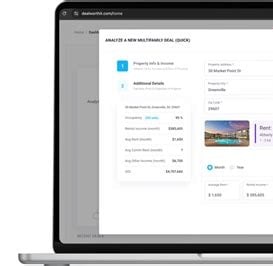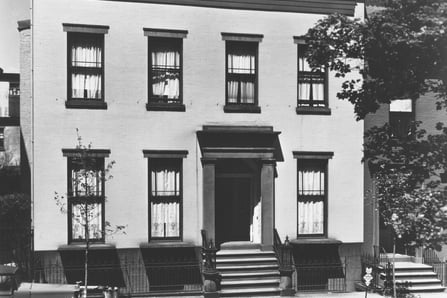Investments










Step 1: Property Discovery & Acquisition
Step 2: Due Diligence & Final Underwriting
Step 3: Renovations, Property Development & On-going Value-Add Process
Step 4: Stabilizing & Refinancing Assets
Step 5: Managing & Operating Structured Assets
While it’s essential to choose high-potential investment properties, at the end of the day any asset can only perform as well as it’s managed. At TrueNorth Capital, we’re invested in not just our properties but also in the systems, processes, and tools needed to manage a portfolio of income-producing assets across multiple markets.
Once property is stabilized for 90 days, we refinance property long term financing at fixed interest rate. At that time, pay off short term construction loan / acquisition loan. And pay investors money back. Long-term debt in place, investor maintains
During this stage, this is when investors get their money back
To build value, TrueNorth Capital focuses on renovation work to best position each investment property. By taking this critical step, our team is able to refresh or, in some cases, overhaul underperforming assets, increasing interest and driving rents in the right direction. This, in turn, immediately improves cash flow and long-term capital appreciation, while limiting ongoing maintenance expenses, creating a more valuable asset for all parties.
Ongoing Investor Updates
Our partners and investors receive updates every 60 days throughout the renovation process. Between these check-ins, the TrueNorth Capital team is available via phone or email, as needed .
The initial underwriting process kicks off a comprehensive due diligence schedule that taps into our extensive structuring expertise. From onsite inspections to a financial deep-dive to mitigating potential risks while maximizing rewards, we dig deep on each potential deal, with only the most qualified moving forward.
Once we’ve identified potential opportunities, our expert team filters based on key factors— including price, location and asset quality. This process ensures we only acquire investment properties that meet our goals and expectations, and that will pass the stringent underwriting process that follows.
Smart Search.
Buy Smart.
Fix Smart.
Smart Money.
Smart Ops.
Invest Smart.
Investment Strategy
Our Buying Criteria


Asset Type
Apartment Buildings
Mixed Use Buildings
Special Use Considered on case-by-case
Number of Units
Multifamily: 8-30+ units preferred
Mixed Use Buildings
Smaller multifamily considered in some markets
Age of Units
While our "sweet spot" is 1975 or newer, this is dependent on region
Older historic properties in high rent areas
Ultimately, we adjust our "buy box" to each market
Target Markets
Nationwide strong growth markets
Areas in the Pathway of Progress
Southeast (our original market), Midwest, Southwest & other nationwide areas within our partnership
Generally, we will focus growth in 2 or 3 markets at a time to maintain a synergy of operations
Asset Location & Quality
A or B class trade areas with strong rental demand
Vibrant local economy with near proximity of attractive anchors (hospitals, corporations, shopping, industry)
Class B or C properties
Value-add opportunities strongly preferred
Distressed or underperforming properties with strong potential for enhanced yields


Occupancy
80% occupancy strongly preferred
Lower occupancy will be considered if property is well-located with exceptional value add upside
Other General Criteria
Minimum 10% after repairs and stabilization
Potential high yield income streams and tax savings*
Target cost basis at 25% below stabilized value
*Consult your legal and tax advisors for individual advice
Target Return & Investment Period
Return on investment varies per project & investment range
ROI is based on stabilized financials
Asset strategy may include 3-4+ (short term) or 7-10+ (long term) year hold period
Generally, preferred returns paid during hold period and equity return paid upon asset sale


